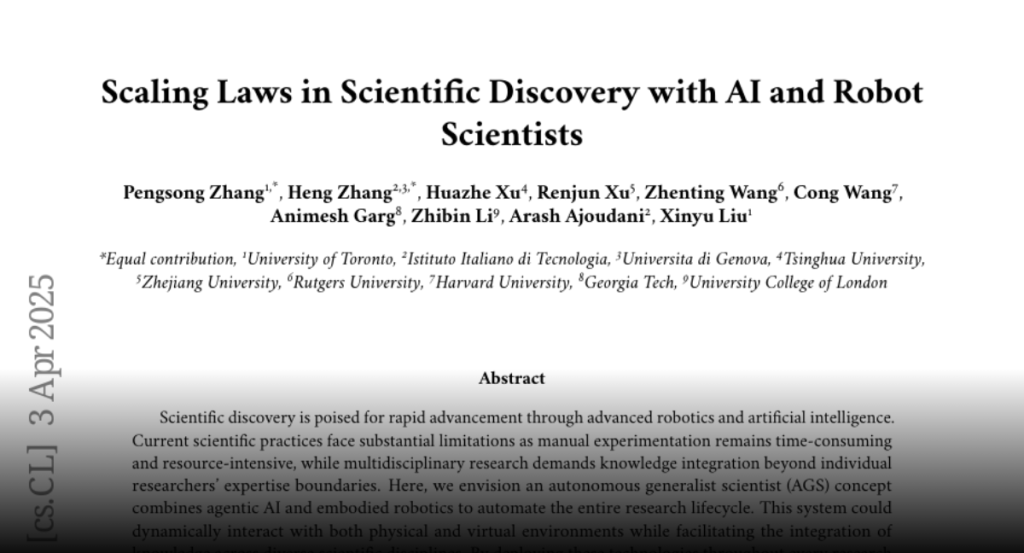Scientific discovery is poised for rapid advancement through advanced
robotics and artificial intelligence. Current scientific practices face
substantial limitations as manual experimentation remains time-consuming and
resource-intensive, while multidisciplinary research demands knowledge
integration beyond individual researchers’ expertise boundaries. Here, we
envision an autonomous generalist scientist (AGS) concept combines agentic AI
and embodied robotics to automate the entire research lifecycle. This system
could dynamically interact with both physical and virtual environments while
facilitating the integration of knowledge across diverse scientific
disciplines. By deploying these technologies throughout every research stage —
spanning literature review, hypothesis generation, experimentation, and
manuscript writing — and incorporating internal reflection alongside external
feedback, this system aims to significantly reduce the time and resources
needed for scientific discovery. Building on the evolution from virtual AI
scientists to versatile generalist AI-based robot scientists, AGS promises
groundbreaking potential. As these autonomous systems become increasingly
integrated into the research process, we hypothesize that scientific discovery
might adhere to new scaling laws, potentially shaped by the number and
capabilities of these autonomous systems, offering novel perspectives on how
knowledge is generated and evolves. The adaptability of embodied robots to
extreme environments, paired with the flywheel effect of accumulating
scientific knowledge, holds the promise of continually pushing beyond both
physical and intellectual frontiers.

